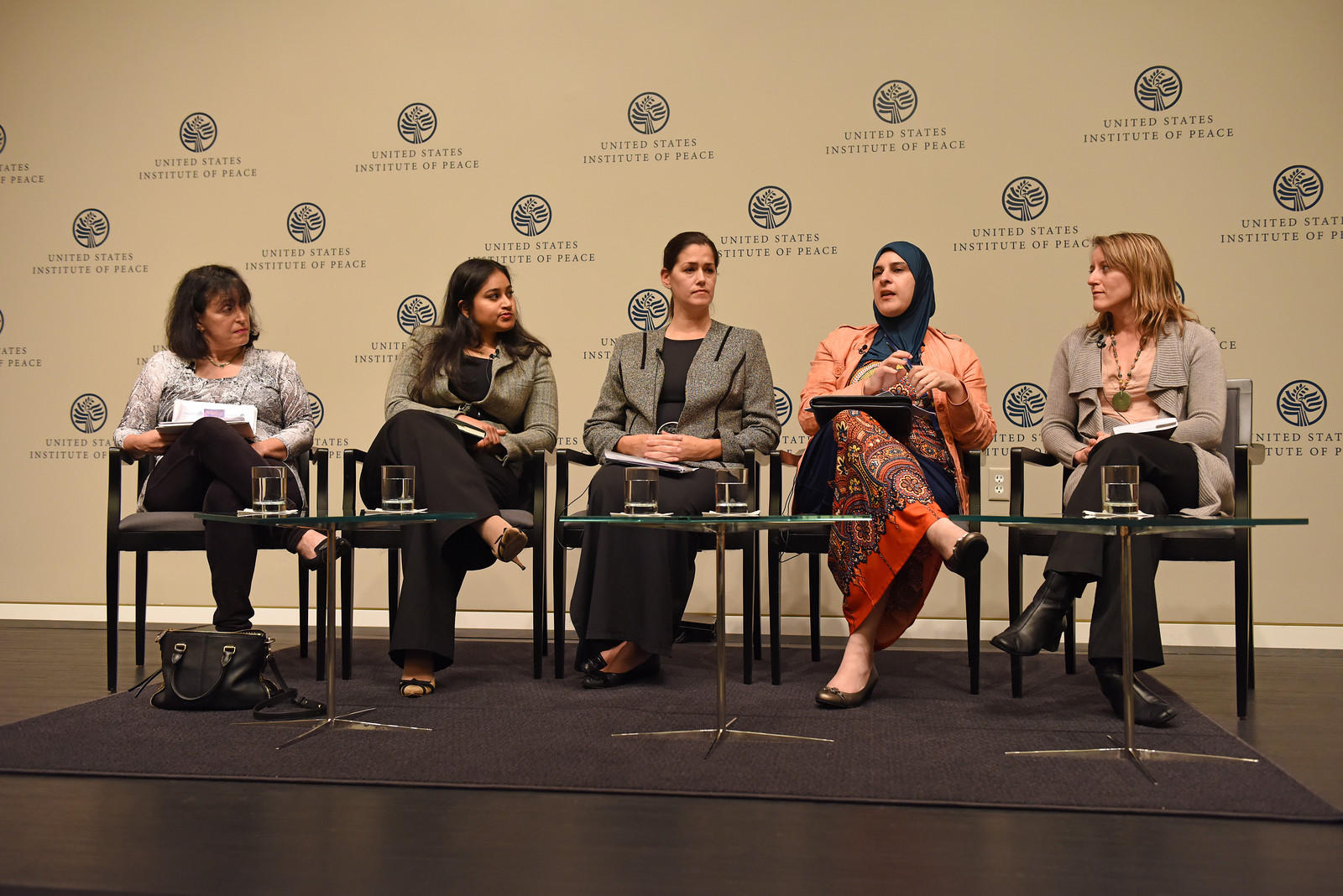Islam, Culture and Sexism: What Needs to Change?
Muslim Women Campaign for Gender Equality
Read the Event CoverageISIS extremists in Iraq and Syria declare that Islamic scripture justifies their taking of refugee women as sex slaves. Men in some Muslim societies cite their religion in defending “honor killings” of women. In the West, many commentators proclaim Islam inherently sexist, and some governments ban the veils traditionally worn by many Muslim women. Amid the turmoil, a growing cohort of female Islamic scholars says Muslim women are marginalized not by the Quran but by patriarchal cultural practices and interpretations of their faith. On October 13, 2015, USIP screened the recent PBS documentary “Gender Equality in Islam,” and hosted a discussion on how women can understand and advance the gender-equitable principles of the faith.

“Gender Equality in Islam” presents the work of Dr. Azizah al-Hibri, a longtime University of Richmond law professor and Islamic scholar who in 1993 founded Karamah, an organization that educates Muslim women about Islamic principles of justice and gender equity. Karamah’s executive director, Aisha Rahman, who is featured in the film, joined other experts to discuss the importance of education and other tools that women need to interpret and promote Islam’s defense of women’s rights. Continue the conversation on Twitter with #WomenInIslam.
Speakers
Bonnie Erbé, Moderator
Host of PBS’ news analysis program, To the Contrary
Aisha Rahman
Executive Director of Karamah
Lynn Kunkle
Director of Grants, former Board Member of The El-Hibri Foundation
Manal Omar
Acting Vice President, Center for Middle East and Africa, U.S. Institute of Peace
Susan Hayward
Director of Religion and Inclusive Societies, U.S. Institute of Peace




